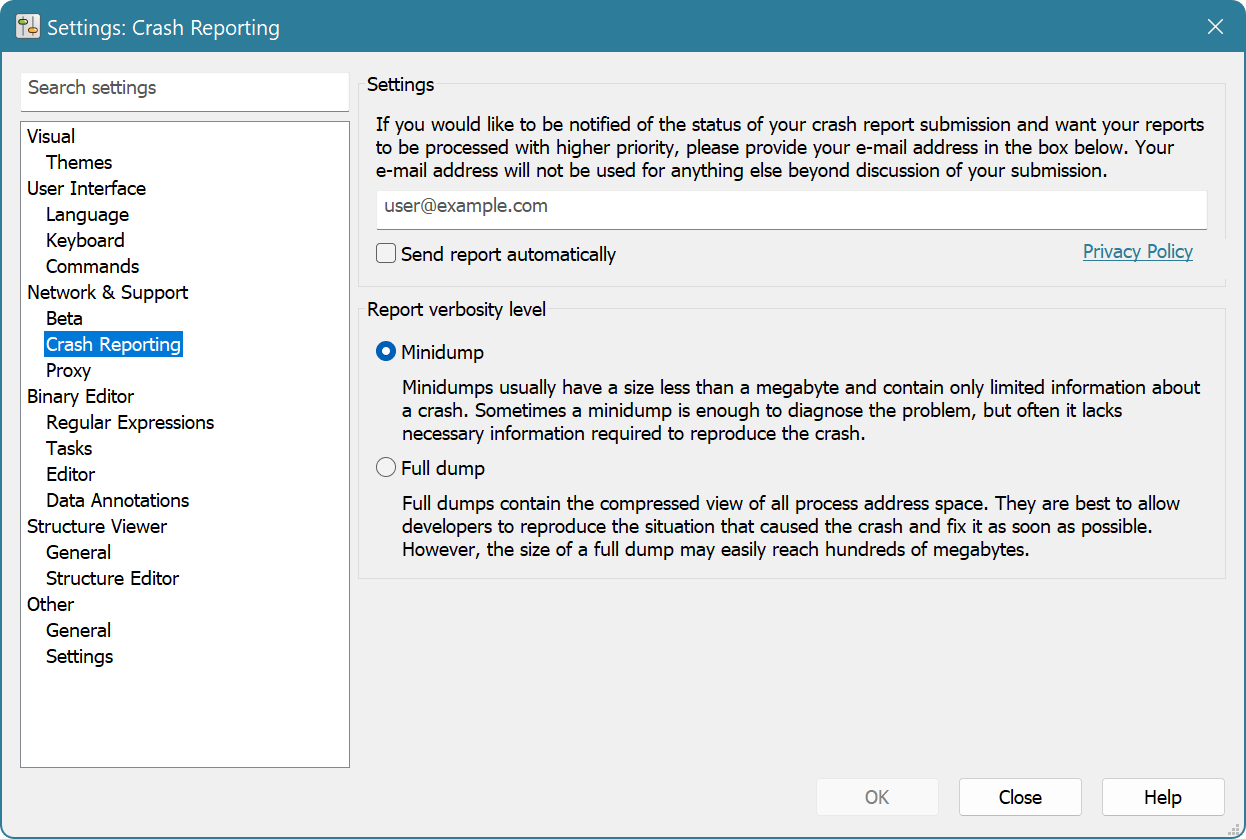Crash Reporting Settings
We have worked hard to eliminate all possible bugs in the product. Nevertheless, as in each software product, bugs occur from time to time. The worst of bugs are general protection faults or other types of exceptions that cause the operating system to forcefully close the application, possibly causing user data losses.
Hex Editor Neo includes the built-in crash reporter. If application crashes, a small crash report, called minidump is generated. You are offered to send a compressed report to HHD Software web site for analysis.
Crash Reporting Configuration
The Crash Reporting settings pages, accessible through the Tools » Settings… menu, allows you to configure the following information:

You can optionally enter your e-mail address which will be submitted with crash dumps generated on your computer. If you provide your e-mail address, you might be contacted to provide additional information and notified when any progress is made concerning your report.
You can also choose the type of generated dump: minidump or full dump. Minidumps are usually very small (less than a megabyte) and contain only essential information. They are sometimes enough to diagnose and reproduce the problem. However for analyzing complex problems, a full dump is preferable, because it contains a copy of the whole process memory and allows to view the values of any local and global variables. The downside of a full dump is its size, which can easily exceed hundreds of megabytes.
Remember that the more crash dumps we receive the faster we release an update that fixes the bug.
All information is always submitted anonymously.
Crash Report Processing
All received crash dumps are automatically analyzed and grouped according to the problem type.
HHD Software developers browse the crash report database on a regular basis. Reports received from maximum number of user computers receive the highest attention. They are fixed at the earliest time. Less frequent bugs may take longer to be fixed.
The lack of full dumps for complex problems may also postpone the fix of the bug.
Having users' e-mails may actually speed up fixing particular bugs, even if they do not fall into “most frequent” category.